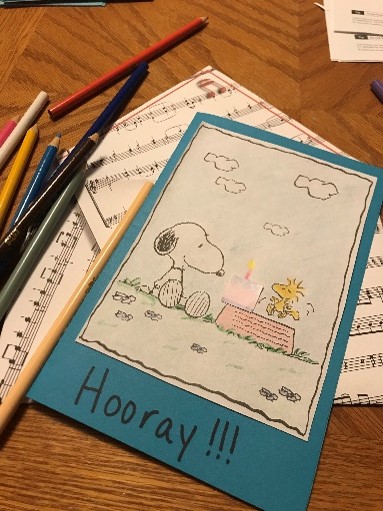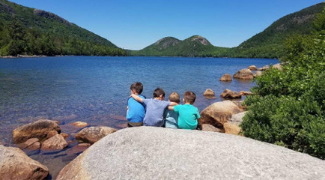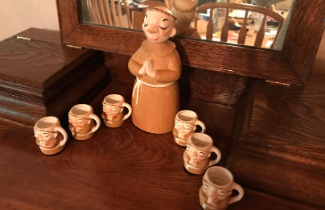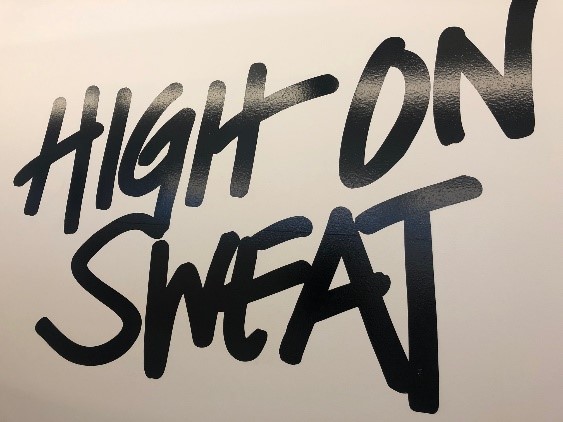I love the commercials that end with “what’s in your wallet?”. How about “what is your passion?”. In retirement, mine is simple. Music. Not performance, but brass instruments. Specifically, trumpets, cornets, and flugelhorns. Last year, I had a trumpet made that I designed.
I could describe it to you in excruciating detail and tell you all that went into its creation. Hours of work spanning 4 to 5 years. Hundreds of hours determining its specifications. Countless hours spent emailing and phoning strangers who guided me educated me and provided their insight, all without compensation. I was able to form bonds with complete strangers over a shared love of brass instruments. In many ways, the community of brass instrument repairers and developers is more close-knit than the community of musical performers. Performers need design and repair people, the reverse is not true.
Recently, I reconnected with a woodwind man I hadn’t seen in decades. He has been a guest conductor in the UK, Europe, the Netherlands, and behind the old Iron Curtain. Oh, I forgot, Carnegie Hall and the Kennedy Center also. I guess you could say he’s been successful.
After we caught up and relived the past we spoke of the present. After a life on the road, he taught Jazz Musicology at two different universities. We’re both retired. He still performs in Pennsylvania and North Carolina just because he wants to.
Two different individuals, two different career paths, each with a shared passion in retirement that we shared in our youth. Music. When I told him about my trumpet design, he almost fell over. He demanded details, photos, etc. I gladly complied.
Why share this with you? Simple. Find or rediscover your passion. Don’t wait for the future. Do it now. Had I continued my passion for music while I still practiced psychiatry, I would have more fully benefited from the combined experience. Fortunately, I didn’t miss out entirely. I nurture my soul now. As is often said, “better late than never”.
A few days ago, my wife and I attended a concert by the Baroque Orchestra. Between selections, I whispered to her about the orchestra’s use of Eb and piccolo trumpets during various selections and why they were used. It wasn’t difficult. I had a teaching assistantship in the music department at my undergraduate school. I was a math major who taught “Intro to Music” to freshmen. Music has always been a part of me.
Walking home from the concert I said that I wished I had studied musicology in depth. She asked if I meant instead of practicing psychiatry. Heavens no. I should have done both.
“What is your passion?”

 With the month of November halfway gone, it’s easy to begin to stress about the holiday season. Where am I going to get my Thanksgiving turkey? How long do they need to defrost again? Do I have enough time and money for Christmas gifts? How will I balance seeing my family and my in-laws? All these questions need answering. It’s overwhelming and anxiety-provoking just thinking about it.
With the month of November halfway gone, it’s easy to begin to stress about the holiday season. Where am I going to get my Thanksgiving turkey? How long do they need to defrost again? Do I have enough time and money for Christmas gifts? How will I balance seeing my family and my in-laws? All these questions need answering. It’s overwhelming and anxiety-provoking just thinking about it. In the middle of my yard stands a majestic American chestnut tree. Virtually extinct for decades (1), this mature treasure is now a rare find, considered one of the most perfect of trees, with every part having great utility and beauty. I have learned a lot from that tree. The tree has been there for the nearly three decades I have called this place “home” and most likely a century prior.
In the middle of my yard stands a majestic American chestnut tree. Virtually extinct for decades (1), this mature treasure is now a rare find, considered one of the most perfect of trees, with every part having great utility and beauty. I have learned a lot from that tree. The tree has been there for the nearly three decades I have called this place “home” and most likely a century prior. I have always been fascinated with growing things, mostly vegetables, occasionally flowers and houseplants. I have had varied success with the flowers and the houseplants, but, for the most part, I have had some spectacular yields from my home garden.
I have always been fascinated with growing things, mostly vegetables, occasionally flowers and houseplants. I have had varied success with the flowers and the houseplants, but, for the most part, I have had some spectacular yields from my home garden. Head, Shoulders, Knees and Toes, Knees and Toes...
Head, Shoulders, Knees and Toes, Knees and Toes... I have to admit, when I was young, I did not like to color. We all had to do it in elementary school. Coloring was a skill that taught us how to follow instructions, express creativity and stay in the lines. As a child, I followed instructions well, was more creative with words rather than drawing, and honestly, I had trouble staying in the lines, (though, my difficulty staying in the lines helped discover a vision problem).
I have to admit, when I was young, I did not like to color. We all had to do it in elementary school. Coloring was a skill that taught us how to follow instructions, express creativity and stay in the lines. As a child, I followed instructions well, was more creative with words rather than drawing, and honestly, I had trouble staying in the lines, (though, my difficulty staying in the lines helped discover a vision problem). Usually to restore wellness, one seeks activities that are peaceful and tranquil. Such activities might include yoga, meditation, exercise, or reading.
Usually to restore wellness, one seeks activities that are peaceful and tranquil. Such activities might include yoga, meditation, exercise, or reading. Have you ever wondered how you accumulate so much stuff and why you keep certain things? Recently, I have had the distinct privilege and responsibility to sort through the belongings of people who are close to me that have died. In the past five years, I have peered into the intimate life details of my mother, father and most impacting, my husband of 26 years.
Have you ever wondered how you accumulate so much stuff and why you keep certain things? Recently, I have had the distinct privilege and responsibility to sort through the belongings of people who are close to me that have died. In the past five years, I have peered into the intimate life details of my mother, father and most impacting, my husband of 26 years. How are you doing? This is usually the first question I ask my patients when I see them in the office. I suspect like many of you, the typical answers I get now (terrified, I don’t know, bad) are different than what I would have gotten six months ago (good, ok, not bad). What hasn’t changed is the thing that patients most need from us – information.
How are you doing? This is usually the first question I ask my patients when I see them in the office. I suspect like many of you, the typical answers I get now (terrified, I don’t know, bad) are different than what I would have gotten six months ago (good, ok, not bad). What hasn’t changed is the thing that patients most need from us – information. Postdoctoral training is rigorous and time-consuming. The emotional and physical implications of residency and fellowship call for trainees to take what little time they do have to participate in enjoyable activities that keep them going. As co-residents at Albert Einstein Medical Center in Philadelphia, we found the popular indoor cycling class, SoulCycle, to be our go-to wellness activity. Since our intern year, we have been arranging meet-ups at the music-blaring, sweat-dripping, lights-flashing dark room that is SoulCycle. Now, carrying on into our separate fellowships, we still find time to enjoy a 45-minute jam and cycle “sesh.”
Postdoctoral training is rigorous and time-consuming. The emotional and physical implications of residency and fellowship call for trainees to take what little time they do have to participate in enjoyable activities that keep them going. As co-residents at Albert Einstein Medical Center in Philadelphia, we found the popular indoor cycling class, SoulCycle, to be our go-to wellness activity. Since our intern year, we have been arranging meet-ups at the music-blaring, sweat-dripping, lights-flashing dark room that is SoulCycle. Now, carrying on into our separate fellowships, we still find time to enjoy a 45-minute jam and cycle “sesh.”